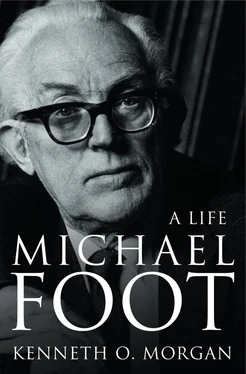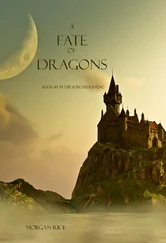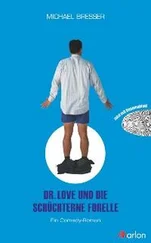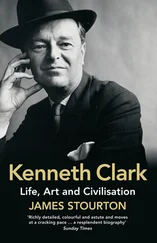The dominant theme of his speeches at the time was always resistance to war. Foot is a good example of the rebellion of the young in the later twenties and earlier thirties, responding eagerly to anti-war works like All Quiet on the Western Front or Goodbye to All That , using images that exposed ‘merchants of death’, denouncing the ‘system of Versailles’ and calling for a new international order with open covenants openly arrived at. One book on the wartime experience that made a particularly deep impression on him was the poet Edmund Blunden’s Undertones of War (1928). Foot’s credo came out very clearly in a compilation of four essays by recent Oxford undergraduates, Young Oxford and War , published by Selwyn Blount in 1934, under the unexpected editorship of a rising Indian politician, V. K. Krishna Menon, and with a brief foreword by Harold Laski. 47 The authors were a varied group. R. G. Freeman was a Communist and President of the short-lived October Club. Frank Hardie, the former Union President, wrote ‘as a pacifist and a socialist’. Keith Steel-Maitland, whose chapter was easily the most practical and down-to-earth, was a moderate Conservative.
Finally there was Michael Foot, writing passionately as a near-pacifist Liberal. He condemned the rise of militarism in schools and universities in recent years: ‘There can be no real distinction between defence and offence in the modern world.’ He quoted freely from anti-war Union of Democratic Control authors like G. Lowes Dickinson and Norman Angell, author of International Anarchy , a phrase which appeared with much frequency in Foot’s early writings. He applauded the pacifist arguments advanced by Quakers and others, and pointed to the success of German Protestants in, so he claimed, resisting Hitler. Pacifism implied ‘unilateral disarmament’ and argued that evil should not be resisted with evil. The broad pacifist movement was plagued by internal divisions but could focus on ending international anarchy and ‘the elimination of force from the conduct of international affairs’. His was by no means a complete or unqualified pacifist argument. A properly constituted collective peace force to provide a backing of law ‘does not contain the elements objected to by the pacifist’. But instances in which resort to arms could ever be accepted by one of Foot’s outlook seemed hard to spell out in practical terms. It was a young man’s tract, rich in idealism, uncertain in logic, lacking in any kind of practical detail. But it embodied themes that were constantly to recur in Foot’s later career.
Foot emerged from Oxford with a glowing reputation as a potential young politician, even perhaps a future minister, Cripps and others thought. As noted, he announced his release from Oxford life with a trip to Paris with his brother John, spent in part breaking their vow of abstinence from alcohol, in part pursuing in vain a pretty young French girl Michael had met at Pencrebar the previous year. His student days had officially come to an end, but there was an interesting coda that autumn. With his close friend John Cripps he went to the United States for the first time in a debating tour on behalf of the Oxford Union. America was neither a country nor a culture that had impinged greatly on Michael’s early years, although he enjoyed aspects of its artistic life such as the films of Walt Disney and the voluptuous Mae West, and had some emerging interest in writers such as Emerson and Thoreau. Politically, like many young Englishmen, he had much enthusiasm for Franklin Roosevelt’s New Deal programme, which he regarded as an attempt to shore up social welfare and progressive economics against backwoods Republican reactionaries during the Great Depression, and indeed as an inspiration to the world. But it belonged ‘over there’, and had little directly to offer the young Foot (though this was equally true of young Labour economists like Hugh Gaitskell, Douglas Jay or Evan Durbin at the same period).
It was a gruelling visit, with twenty-two debates between 26 October and 4 December 1934. 48 They went mostly to universities on the eastern seaboard, ranging from Yale and Penn State to Bates College, Maine. The last two debates took them almost seven hundred miles west, as far as Michigan. Michael Foot and John Cripps, ‘two quiet young chaps wearing glasses’, as they were described in the Atlanta Journal , 49 were usually given left-wing motions to defend, which they both did with much success, defending trade unions, condemning military training in schools, attacking isolationism in American foreign policy. The old Liberal in Foot emerged in a robust attack on American trade policy at New Rochelle, New York, on 26 November: ‘If you uphold an isolationist policy, you can no longer remain a great creditor nation, you can no longer remain a great exporting nation.’ The result would be the same economic collapse and mass unemployment that were then so visible in Britain. He and Cripps were invariably triumphant in these debating jousts, and a succession of student newspapers wrote in praise of their wit and eloquence. Foot’s ‘brilliant rebuttal’ in a motion on the need for trade unions was praised in Yale News , 50 although there were some murmurs that the Oxford Union seemed a bit facetious by American standards. There were also random interviews in which Michael told the Americans of the importance of Mickey Mouse to the British view of transatlantic culture. 51 The tour was, in its way, an important episode for Foot. America was never so appealing that it shaped his political or other views: despite his enthusiasm for most aspects of Roosevelt’s New Deal, he was too intensely English for that. But the visit enlarged his vision in many respects. For instance, one aspect he noticed was the apparently much greater prominence of women in higher education in the US, notably in some distinguished women’s colleges at which he and Cripps spoke. The trip took him out of his familiar English radical world for a while, and helped him to grow up.
Michael Foot’s early years made him a distinctive, perhaps unique, kind of politician. He somehow bridged new and old, the brave new world radicalism of the post-war generation alongside the cultural depth of a Victorian man of letters. He was in many ways an old young man; equally he remained an eternally youthful spirit well into extreme old age. He drew from his origins a passionate attachment to the traditions of his family, and of Plymouth and the West Country more generally. He acquired an immense stock of vivid, easily mobilized political and literary influences and allusions. An apt quotation from Foot could spear opponents at will. His political connections were strong, first with Lloyd Georgian Liberalism, though perhaps Stafford Cripps might direct him towards new horizons. As a young debater at Oxford he acquired a fluency and poise in debate, buttressed by a kind of cultural confidence that pushed him towards a public career. He discovered that he could speak and he could write, with passion, conviction and often brilliance. He had all the idealistic fervour of a young anti-war radical at that time. Yet perhaps the abiding legacy from his younger days was an ability to place himself in historical context. When he reflected on current political and social issues, Drake and Cromwell, Tom Paine and Hazlitt, even aberrant turncoats like Edmund Burke, were at his shoulder. He felt himself to be somehow their heir, a past and future king of libertarian dissent, but searching still for a coherent movement to lead or even to join. But, whatever his future, he would share with the inspirational Isaac a demonic energy to pursue great causes. For ‘He trespasses upon his duty who sleeps upon his watch.’ No Foot ever dared do that.
2 CRIPPS TO BEAVERBROOK (1934–1940)
Читать дальше












